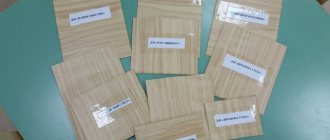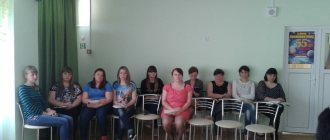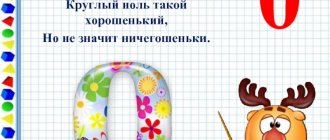Patriotic education is an integral part of the social and moral education of the younger generation and the formation of a harmoniously developed personality. That is why the new educational system in the Russian Federation is focused on raising a worthy citizen and patriot from an early age.
Classes on patriotic themes are compulsory in both private and public preschool institutions. We will talk about the main goals and objectives of the moral and patriotic education of preschool children in the article.
The main goal of patriotic education of children in preschool educational institutions
The main goal of moral and patriotic education in children's educational institutions of all types is the formation and development of patriotic feelings in children: love for their country, native land, their natural resources, culture, history, moral values, national and family traditions, people. In the process of growing up and accumulating knowledge about the Motherland, the life of society, nature and the work of people, these feelings are formed in growing children step by step.
Card index of conversations on moral and patriotic education card index (senior group) on the topic
Card file of conversations on moral education
Topic #1: Why do they say “hello”?
Goal: To form in children the basic rules of etiquette when meeting. Introduce greeting methods. To consolidate ideas about the importance and necessity of using “kind words” in colloquial speech, to arouse the desire to use them.
Topic No. 2: “My good deeds”
Goal: to deepen children’s understanding of kindness as a valuable, integral quality of a person. Improve communication skills (the ability to listen to a friend, sincerely express one’s opinion, show kindness to the opinions of other children), skills of cultural communication with peers. Achieve friendly intonation expressiveness of speech. To cultivate in children friendly relationships, feelings of self-esteem and respect for others, the ability and desire to come to the aid of adults and peers.
Topic No. 3: “Truthfulness”
Goal: To form ideas about the moral concept of “truthfulness”, to teach how to give a moral assessment of the hero’s actions, to help understand that a lie does not decorate a person.
Topic No. 4: “Hurry to do good”
Goal: Continue familiarization with the polar concepts of “good” and “evil.” Form a conscious attitude towards social norms of behavior, consolidate the skills of friendly behavior in everyday life. Introduce ways to resolve conflict associated with feelings of anger, as well as ways to manage and regulate mood. Continue to cultivate friendly relationships between children.
Topic No. 5: “If you are kind...”
Goal: To develop in children the need for friendly communication with others, to consciously show empathy and perform kind deeds. To teach to understand the meaning of proverbs about goodness, the ability to associate the meaning of a proverb with a specific situation. Teach children to show kindness and responsiveness to everyone who needs it.
Topic No. 6: “Polite words”
Goal: To teach children the rules of etiquette, forms and techniques of communication when meeting with acquaintances and strangers, the rules of using greetings. Help overcome shyness and stiffness in children. Develop the ability to express your opinion in a cultural way, listen carefully to your interlocutors. Teach formulas for expressing polite requests and gratitude.
Topic No. 7: “Accidentally and on purpose”
Goal: to develop moral feelings - regret, sympathy; develop gaming communication skills without hurting your partner’s interests.
Topic No. 8: “Why you need to be able to give in”
Goal: to teach children to avoid quarrels, give in and negotiate with each other. Develop the ability to evaluate your attitude towards positive and negative actions.
Topic No. 9: “Why do there be fights?”
Goal: to develop communication skills in children; develop an understanding of the meaning of norms and rules of behavior among peers; cultivate the habit of behaving with dignity in every situation.
Topic No. 10: “Dreamers and liars”
Goal: to develop the ability to distinguish between deception and fiction, fantasy; develop a desire for truthfulness and tact.
Topic No. 11: “Let’s make peace”
Goal: develop the ability to restrain negative impulses, avoid conflicts, find words to evaluate behavior. Teach children to be responsive and sensitive.
Topic No. 12: “A good friend is a friend in need”
Goal: to form the idea that a true friend knows how to empathize and help in difficult times; develop the ability to be merciful to each other.
Topic No. 13: “Goodwill”
Goal: to continue to instill in children a negative attitude towards rudeness. Explain to children that the one who teases not only offends others, but also causes harm to himself (no one wants to be friends with such a person).
Topic No. 14: “Good - Evil”
Goal: To teach to give a moral assessment to the actions of heroes, to cultivate a desire to be kind and humane. To help you understand that a kind person can be called a person who always helps others and does not remain indifferent in situations that are difficult for other people.
Teach to distinguish good deeds, create a desire to do good deeds towards people around you.
Topic No. 15: “What is kindness?”
Goal: To form children’s idea of kindness as an important human quality. Encourage the desire to do good deeds; strengthen children’s ideas about good deeds, understand that polite words help people communicate. Form moral ideas about kindness. Cultivate kind feelings towards people around you.
Topic No. 16: “What a friend should be”
Goal: To form ideas about positive character traits and moral actions, to deepen ideas about friendship. Cultivate respect, patience and friendliness towards your comrades, teach them to correct their mistakes, and ask for forgiveness in conflict situations. Teach children to be responsive and sensitive.
Topic No. 17: “Be neat and tidy”
Goal: To teach children to take care of their appearance. Help you understand that a well-mannered person always looks neat.
Topic No. 18: “Truth is not true”
Goal: To explain to children that they should not deceive others, that they should always tell the truth, that truthfulness and honesty always please adults, that these qualities are highly valued in a person, that they are praised for telling the truth. Help children understand that any lie is always revealed, and the person who lies feels guilty not only for his own offense, but also for the fact that he told a lie.
Topic No. 19: “How to behave during a conversation”
Goal: to introduce children to the rules of behavior during a conversation.
(Speak in a polite tone. Use “magic” words. Look at the interlocutor’s face. Do not keep your hands in your pockets. You should not eat during a conversation. If two adults are talking, the child should not interfere in their conversation, much less demand that it stop)
Topic No. 20: “Politeness”
Goal: To teach children to use polite words, develop appropriate skills of cultural behavior, observe the rules of etiquette, using the example of images of literary heroes, stimulate positive forms of behavior and inhibit negative ones. That you need to communicate with others calmly, without shouting, that you should express your requests in a polite tone.
Topic No. 21: “Thrift”
Goal: To teach children to treat things with care and precision, otherwise they will quickly lose their appearance and become unusable. Teach to appreciate the work of those who made this thing, who bought it, earning money.
Topic No. 22: “Mutual assistance”
Goal: Explain to children that all people sometimes need support, but not everyone can ask for help; It is very important to notice the person who needs help and help him. That you need to help not only acquaintances, but also strangers.
Topic No. 23: “The desire to help”
Goal: To develop emotional responsiveness, the desire to help, showing empathy. Teach children to be responsive and sensitive.
Topic No. 24: “Generosity and Greed”
Goal: To reveal the meaning of the concepts of “greed” and “generosity”. Develop the ability to evaluate your attitude towards positive and negative actions. Understand that being greedy is bad, but generous is good.
Topic No. 25: “Learning to forgive our friends”
Goal: to develop children’s ability not to be offended by each other; develop the ability to distinguish between an accidental mistake and an intentional one and react accordingly; lead children to understand the words “peace-loving”, “touchy”
Topic No. 26: “Steps of kindness”
Goal: based on the content of Russian folk tales, to form in children an idea of justice, courage, modesty and kindness, to cultivate a negative attitude towards negative qualities: lies, cunning, cowardice, cruelty. Learn to convey your attitude to the content of the fairy tale and the actions of the characters.
Topic No. 27: “It’s better to be kind”
Purpose: To give children an idea of an indifferent, indifferent person and his actions. Teach children to distinguish between the external manifestations of an emotional state (anger, indifference, joy). Learn to analyze actions, find the cause of the conflict, ways to resolve conflict situations and promote their assimilation in behavior. Generalize the idea of kindness and evoke the desire to do good deeds.
The tasks of patriotic education of children in preschool educational institutions
The tasks of patriotic education in preschool educational institutions are quite multifaceted. They expand and become more complex as preschoolers grow up, their thinking develops, as well as the gradual formation of the correct attitude towards the surrounding reality, relatives and strangers, and moral feelings.
Objectives of moral and patriotic education in kindergarten:
- To instill in children a love for the Motherland - their native country, its historical milestones, cultural values and traditions.
- To form an idea of the main symbols of Russia: the State Emblem, the State Anthem, the State Flag; teach to understand the meaning of the main elements of state symbols.
- Gradually expand the knowledge of preschoolers about Moscow - the main city of the Russian Federation, about the main attractions and memorable places of the capital.
- Enrich knowledge about the small homeland - the native land: about the origin and meaning of the name of the native city / village / town, about its beautiful corners and attractions, about places of military glory, about nature and people.
- Instill socially useful work skills; to form an idea of work as an important spiritual value for every person; Encourage children's desire to be useful and help other people.
- Cultivate respect for parents and other relatives, awaken interest in family traditions and moral values, family history.
- To introduce the peculiarities of national culture and traditions based on works of fiction and art, folklore, and the work of folk craftsmen.
- To form in preschoolers an understanding of the main national holidays.
- Talk about the Russian army, about the soldiers guarding the Motherland, about military professions (pilots, border guards, tank crews, sailors), about military equipment.
- To cultivate respect for the defenders of the Fatherland, for the memory of the soldiers who died for the Motherland.
- Develop civic-patriotic feelings, interest in events taking place in the country, and historically significant dates.
- To form in pupils a sense of pride for the successes of their Fatherland, for its power, natural resources; to form an understanding of the importance of work for the benefit of the Motherland.
- Instill respect for the people who glorified Russia: military heroes, cosmonauts, scientists, writers, artists.
- International education. Formation in preschoolers of interest and friendliness towards people living in other countries.
The tasks of patriotic education in kindergarten are solved comprehensively, taking into account the age characteristics of preschoolers, in a fun way that awakens interest and curiosity. The methods of moral and patriotic education in preschool educational institutions are diverse: verbal, playful, practical, visual.
Means of developing patriotic feelings in children are fiction, music, visual arts, excursions around their hometown/town/village, exciting games, creativity, feasible joint work, preparation for the holidays.
Long-term plan for patriotic education in the preparatory school group
SEPTEMBER
Conversation “Moscow is the capital of our Motherland” (Moscow City Day - September 3). Objectives: to improve children’s knowledge of what a capital is, what a coat of arms is, to explain the symbolism of the Moscow coat of arms. To foster in children a sense of affection and love for the capital of our Motherland.
2. Examination of illustrations depicting the sights of Moscow Objectives: broaden the horizons of children, activate their vocabulary, cultivate a sense of pride in their Motherland. 3. Reading stories: “The Kremlin”, “Kremlin Towers”.
OCTOBER
1. Conversation: October 1 is the day of older people. Objectives: to tell children about the holiday, the history of its origin, to cultivate love and respect for older people. 2. Conversation “Russian Unity Day”. Objectives: to acquaint children with historical events associated with the holiday, with monuments associated with this holiday. To instill in children an interest in their history, a sense of pride in their people, who did not want to submit to foreign invaders. 3. Learning proverbs and sayings about the Motherland.
NOVEMBER
1. Entertainment “We need different mothers, we need all kinds of mothers” (for Mother’s Day). Objectives: to form a conscious understanding of the importance of mothers in the life of a child, family, and society. 2. Conversation: History of Russia. The symbols of the country are the coat of arms, flag, anthem. Objectives: to consolidate children’s knowledge about the nature of Russia, the history of the country, its symbols. To instill in children an interest in the history of their country, to cultivate a sense of love and pride for their country. 3. Game “State”, “Tron”. Objectives: To give children an initial understanding of morality and the laws of the state. Foster a sense of responsibility, a humane, caring attitude towards others. DECEMBER
1. Design of the photo album “My Country”. Objectives: To cultivate love for your country. To develop children’s ability to see the beauty of their native nature. 2. Consideration of the coats of arms of large cities in Russia. Objectives: To introduce the coats of arms of other cities in the country. Foster patriotic feelings. 3. Design of the stand “Russia is our Motherland”.
JANUARY
1. Conversation: Familiarizing children with the events of the war in Afghanistan. Objectives: to introduce children to the events of the war in Afghanistan, to cultivate respect for soldiers and officers, and to honor the memory of fallen soldiers. 2. Gallery of heroes: show photographs of war heroes, tell that many avenues, streets, stations are named after them. (Shestakov Igor Ivanovich - hero - native of the city of Volzhsk RME) 3. Reading: A. Barto “At the outpost”, Z. Alexandrova “Watch” 4. D/i “Who needs what.” Objectives: to arouse interest in different professions, to consolidate knowledge about tools.
FEBRUARY
1. Conversation: “Defender of the Fatherland Day” Objectives: to consolidate knowledge about the Russian Army - the reliable defender of our Motherland. Introduce children to the work of a border guard. Foster respect for Russian soldiers. 2. Examination of the painting “Border Security.” Objectives: to expand children’s understanding of border service. 3. Reading: The story “Scarlet” by Yu. Koval. Objectives: to develop emotional responsiveness, the ability to empathize with the characters. 4. Making a gift for dad. .Objectives: to arouse children’s interest in preparing gifts and souvenirs. 5. S/r game “Sailors. Return to the port.” Objectives: to develop in children the ability to convey an emotional state in accordance with the characteristics of the role. 6. Sports entertainment “We are the future defenders of the Fatherland.”
MARCH
1. Conversation: Native village - “Jalil”. Objectives: to introduce children to the native village, its historical past and present; to cultivate respect for distant ancestors, fellow countrymen of the region, and a careful attitude towards the history of the native village. 2. Exhibition: Memorable places of the native city. Objectives: to cultivate patriotic feelings, love for the native land. 3. Solving the crossword puzzle: My hometown is Volzhsk. Objectives: to expand and deepen ideas about the animal and plant world of our region, to activate the vocabulary. 4. P/i “Pebbles” (Russian folk game) 5. P/i “Do you know the city”
APRIL
1. Conversation: “Cosmonautics Day” Objectives: To improve children’s knowledge about the Solar System. Expand children's ideas about space flights: introduce them to Russian scientists who were at the origins of the development of Russian cosmonautics, cultivate a sense of pride in their compatriots. 2. Entertainment “Young Cosmonauts”. Objectives: to consolidate children’s knowledge about cosmonaut pilots, character traits and qualities necessary for people in this profession; in games to cultivate dexterity, speed, resourcefulness. 3. Experiment “Why does everything fall to the ground? "Tasks: to bring children to understand that the Earth has a force of attraction, which depends on the weight and area of the object. 4. S/r games “Cosmodrome”, “Young Space Explorers”. Objectives: to consolidate children’s ideas about space exploration, to clarify children’s ideas that only a healthy, educated, persistent and fearless person can be an astronaut. 5. Reading stories about Yuri Gagarin “How a boy became an astronaut” 6. Origami “Cosmonaut”. Objectives: master origami-type construction, consolidate skills in working with diagrams, exercise children in working with paper.
MAY
Conversation “May 9 - Victory Day”. Objectives: to consolidate children’s knowledge of how the Russian people defended their Motherland during the Great Patriotic War, how the living remember them, to cultivate a sense of respect for veterans of the Great Patriotic War, a desire to take care of them. A story about a native of Volzhsk RME - Vasily Nikitovich Prokhorov. 2. Excursion to the monument to fallen heroes. Objectives: to tell children how the memory of fallen heroes is honored in peacetime, to cultivate a sense of pride in those who defended our future from enemies. 3. Artistic creativity. Drawing “Victory Salute” 4. Reading S. Mikhalkov “Victory Day”, A. Mityaev “Dugout”, essays about child heroes. .Objectives: to cultivate respect and a sense of gratitude for everyone who defended our Motherland. 5. D/i “Choose an emblem for a warrior.” Objectives: consolidate knowledge about the branches of the military
JUNE
1. Entertainment “Children’s Day”. Objectives: create a joyful mood in children, cultivate goodwill and responsiveness. 2. Conversation “What I can be responsible for.” Objectives: to develop in children a sense of responsibility for what has been started, for a given word, to develop skills in performing certain actions, to promote the development of self-esteem. 3. Conversations about children's rights. .Objectives: to form children’s ideas about the rights of a child to be raised in a family, educational institutions, about the rights to protect physical, mental, spiritual and moral health.
JULY
1. Entertainment “Hello, red summer.” Objectives: continue to introduce children to folk traditions and customs, create a joyful mood for the holiday. 2. Selection and memorization of folk songs, carols, teasers, chants.
AUGUST
Introducing children to folk outdoor games. .Objectives: to expand children’s ideas about Russia as a multinational state, to introduce new folk games, to develop dexterity, endurance, reaction speed, to cultivate respect for people of different nationalities, their activities and culture.
LIST OF REFERENCES USED
1. Complex classes 2. Developmental classes with children 6-7 years old / Ed. Paramonova L. A. – M.: OLMA Media Group, 2006. – 782 p.
Patriotic corner in kindergarten, brief description
A good help for the comprehensive implementation of the tasks of moral and patriotic education in kindergarten is a colorful, informative, patriotic corner in the group that attracts the attention of children. It can be designed, and then updated and supplemented with new materials together with preschoolers and their parents. According to the Federal State Educational Standard, the patriotic corner in a preschool institution should include six sections.
The main thematic blocks of the patriotic corner in kindergarten:
- “State” is the central block of the patriotic corner. Here in a prominent place are placed: a photograph of the President, images of the State Emblem, the State Flag, the text of the National Anthem, and a geographical map of the country.
- "Motherland". Illustrations of the natural and flora of Russia and the area in which children live. Symbols of the native land. Maps of the area. Photos of famous compatriots, heroes of the Great Patriotic War. Thematic folders introducing pupils to the achievements and glorious history of their native land.
- "Family traditions". Photos, children's drawings and applications dedicated to the theme of family, parents' work, joint family travel, traditions and holidays. Family trees of families depicted by children.
- "Folk Art and Culture". Dolls in national costumes. Models of peasant huts. Antique household items. Samples of folk art: artistic painting, embroidery, pottery and other folk crafts. Albums with photos and reproductions.
- "Small Motherland" Photos, postcards, posters depicting the streets of your hometown/town/village, kindergarten. Geographic map of the locality in which the students live. Drawings on the theme of labor, the beauty of the native nature, city holidays, and events significant for the native land. Portraits of fellow countrymen who glorified their small homeland.
- "Literature". Works of art, brochures, folders with visual materials on moral and patriotic themes.
Design options for patriotic corners in preschool educational institutions:
Senior group. Senior preschool age. Children 5-6 years old
Project for the senior group “Friendship of the Peoples of Russia” “Friendship of the Peoples of Russia”
Age of participants: children 5-6 years old.
Type of project : creative, group, family. Duration of the project : short-term (2 weeks. Composition of the project group : teacher , pupils of the 5-6 year old group , parents. Project : Formation of culture...
Short-term educational and patriotic project “Your feat is not forgotten, soldier” for children of senior preschool age
Prepared by teacher : teacher Tarasenko MBDOU No. 6 “Smile”
Proletarsk, Rostov region Problem: Every year the events of the Great Patriotic War move further and further from us.
The younger generation does not perceive the events of those distant times with the same...
Topics on patriotic education of children
- “Our Motherland is Russia.”
- “I love you, Russia! Russia Day".
- “What does it mean to love your homeland?”
- “The flag and coat of arms are state symbols of Russia.”
- “Beloved land, native land!”
- "Our famous fellow countrymen."
- "Sights of our city."
- “We talk about our family.”
- “Why are we proud of our village?”
- "Life and folk crafts in Ancient Rus'."




